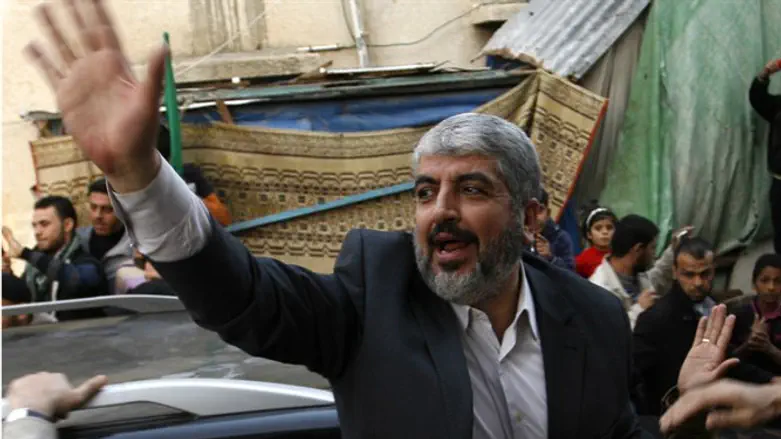
Hamas leader Khaled Mashaal sent messages to Arab security prisoners, promising the prisoners are at the top of the priority list and that the Hamas leadership will do everything to ensure their release.
"It will not be long before the fighting forces will force Israel to pay the price and to release the Palestinian prisoners," Mashaal said, hinting there may be a new swap similar to the 2011 Shalit deal.
In an interview with Al-Quds, Mashaal called for complete unity between the Arab terrorist organizations, both in Judea, Samaria, and Gaza and in other places as well. He also called on the various organizations to work together with liberals around the world in order to support prisoners and "expose" Israel's "acts against them."
In fact, Arab terrorists have said they enjoyed a life of ease in Israeli prisons, with officials admitting that various perks are given to the terrorists in an attempt to prevent rioting.
In 2014, then-Internal Security Minister Yitzhak Aharonovich was given a freer hand to impose "harsh" conditions on jailed Hamas terrorists in a Security Cabinet decision. Later, it was divulged that those "harsh" conditions meant no more watching the World Cup on TV or shopping at the jail's canteen.
Terrorists once could pursue an academic degree during their terms in Israeli prisons. Although this is now against the law, academic studies have continued. In 2011, it was revealed that the terrorist prisoners' favorite course is "Genocide."
Arab protests in support of the hunger striking terrorist prisoners continue, and several times the protesters have clashed with the IDF. These protests are scheduled to continue until May 4.
Fatah, the terror organization to which Palestinian Authority Chairman Mahmoud Abbas belongs, called on Arab groups around the world to support the strikers' efforts by holding protests in their own localities in order to pressure the local government to place pressure on Israel.
On April 17, 700 terrorists began an indefinite hunger strike. However, over 100 terrorists have already broken their strike.
Jailed terrorists have often used hunger strikes as a pressure tactic aimed at forcing Israel to improve the conditions of their imprisonment or release them out of fear for their lives. Israel has several times in the past caved to the pressure and released some hunger strikers.